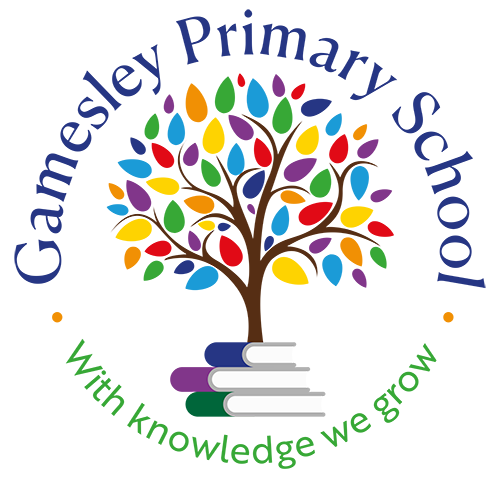History is about events that have taken place in the past, whether it is 100 years ago or last week. It is also about people: people from this country and from other countries around the world. It is about people’s actions, the reasons for them and the evidence that remains of them. It is about changes that have occurred and the causes and consequences of these changes. History is about the relationship between the past and the present. Skills developed through historical enquiry have a wide application to everyday life and historical awareness promotes responsible citizenship.
Our Aims
Through our history lessons at Gamesley Primary School, we aim to provide pupils with a thorough understanding of the past of both Britain and the wider world. We aim to ensure that children are able to think critically when examining evidence and can develop their own opinions, which they can then back up with their historical knowledge.
History in the Curriculum
Our Science Curriculum is planned and delivered using Cornerstone Maestro Curriculum 22.
The history projects are well sequenced to provide a coherent subject scheme that develops children’s historical knowledge, skills and subject disciplines. Key aspects and concepts, such as chronology, cause and effect, similarity and difference, significance and hierarchy, are revisited throughout all projects and are developed over time. All projects also develop historical skills based on evidence and historical enquiry.
The choice of historical periods follows the guidance set out in the national curriculum, with specific details relating to significant events and individuals chosen to present a rich and diverse account of British and world history.
Where there are opportunities for making meaningful connections with other projects, history projects are sequenced accordingly. For example, the project Dynamic Dynasties is taught alongside the art and design project Taotie to give children a better all-round understanding of ancient Chinese arts and culture.
All history projects are taught in the autumn and summer terms, with opportunities for schools to revisit historical concepts in some of the spring term geography projects.
Key Stage 1
In Year 1, children begin the autumn term by studying the project Childhood. This project builds on children’s past experiences, including their family history and events within living memory, and works well as an introductory project. In the summer term, children study the project School Days. This project enables children to learn the history of their school and compare schooling in the Victorian period.
In the autumn term of Year 2, children extend their studies to explore a broader range of periods in the project Movers and Shakers. This project explores the concept of significance and the significant people that have greatly influenced history. In the summer term, children study the project Magnificent Monarchs. This project introduces children to the challenging concepts of power and monarchy in preparation for more complex historical topics in Key Stage 2.
The projects studied in Key Stage 1 provide numerous opportunities for children to explore significant historical events, people and places in their locality.
Lower Key Stage 2
In Year 3, children begin the autumn term by studying the chronology of British history in the project Through the Ages. This project teaches children about the significance of prehistoric periods and the changes in Britain from the Stone Age to the Iron Age. In the summer term, children continue to develop their knowledge of the chronology of British history in the project Emperors and Empires. This project teaches children about the Roman Empire, its invasion of Britain and Britain’s ensuing Romanisation.
In the autumn term of Year 4, children resume their learning about British history in the project Invasion. This project teaches children about the Roman withdrawal and the invasion and settlement of the Anglo-Saxons and Vikings. This project concludes at 1066, which meets the guidance from the national curriculum for British history. In the summer term of Year 4, children begin their studies of ancient history by studying the overview project Ancient Civilisations. This project enables children to learn about the achievements of the earliest civilisations, including ancient Sumer, the Indus Valley civilisation and ancient Egypt.
Upper Key Stage 2
In the autumn term of Year 5, children continue to build their knowledge of ancient civilisations with an in-depth analysis of ancient China in the project Dynamic Dynasties. This project enables children to study the significance and influence of ancient China and its prowess and advancements in the written word, technology and metalwork. In the summer term, children further study ancient and world history in the project Groundbreaking Greeks. This project enables children to explore life in ancient Greece, including examining the achievements and influence of ancient Greece on the western world.
In the autumn term of Year 6, children study the more complex historical issues of enslavement, colonialism and power in the project Maafa. In this project, children explore a range of African kingdoms, including the Kingdom of Benin, and study Britain’s role in the development, perpetuation and abolition of the slave trade. In the summer term of Year 6, children complete their historical studies with the project Britain at War. This project enables children to study the role war has played in Britain’s history since 1066, focusing on the First and Second World Wars as crucial turning points in British history. Throughout the history scheme, there is complete coverage of all national curriculum programmes of study.
Teaching and Learning
The school uses a variety of teaching and learning styles in history lessons. Our principal aim is to develop the children’s knowledge, skills and understanding in history and we use a variety of teaching and learning styles in our history lessons. We believe in whole-class teaching methods and combine these with enquiry-based research activities. We believe children learn best when:
- They have access to, and are able to handle artefacts
- They go on visits to museums and places of interest
- They have access to secondary sources such as books and photographs
- Visitors talk about personal experiences of the past
- They listen to and interact with stories from the past
- They undertake fieldwork by interviewing family and older friends about changes in their own and other people’s lives
- They use drama and dance to act out historical events
- They are shown, or use independently, resources from the internet and videos
- They are able to use non-fiction books for research
- They are provided with opportunities to work independently or collaboratively, to ask as well as answer historical questions.
History learning is enriched through a range of experiences including workshops on Ancient China, Greece and Egypt and visits to Macclesfield Silk Museum, Portland Basin, Sheffield Manor Lodge, Tatton Park, Stockport Air Raid Shelters, Skipton Castle and Liverpool Slavery Museum.

